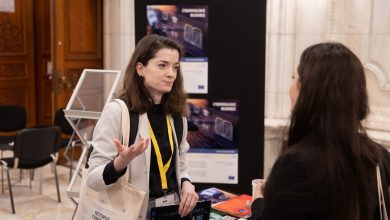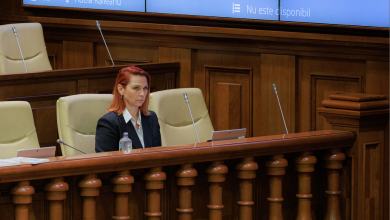The New BC President Liliana Vitu: Ukraine War Shows We Are Still Vulnerable to Foreign Propaganda
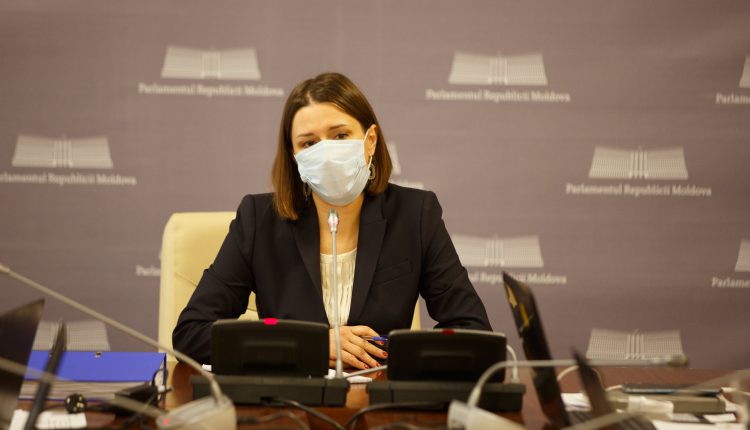
Lack of staff and poor technology remain among the biggest challenges for the broadcasting regulator’s administration. These intensified especially with the outbreak of the war in Ukraine, when the Council found itself under a host of criticism for not fighting effectively the propaganda of the Russian Federation, while most of the objectives of the new members of the BC were put on hold. See the responses of Liliana Vitu to these grievances, her plans for this year and what solutions she has for a series of problems, in the interview for Media Azi.
Media Azi: First of all, Mrs Vitu, we would like to know how you feel as a viewer since the beginning of the war in Ukraine. How satisfied are you with the information provided by our television channels?
Liliana Vitu: As a viewer, I have to make a choice and compare who and what provides and, hence this, I find that there are certain channels that manage to do their duty to inform – channels supported in recent years by international structures, NGOs- and which, in spite of precarious conditions or limitations, in spite of a very poorly developed broadcasting and advertising market, everything related to domestic production, I consider that they have managed to inform the public. It is obvious that we also have channels that rather somehow set out to resist and applied the ostrich effect to avoid danger, by means of omission. There are channels where war does not exist, and here too there is a way to fail to serve the public interest. The viewer Liliana Vitu is happy when she can watch channels like BBC, CNN and even independent local ones, but she realizes that for those in the rural area or who are disadvantaged, it is clear that things are looking pretty bleak and that we have a lot to do.
Is there broadcasting pluralism in the Republic of Moldova?
There is, to a certain extent, because we have politically unaffiliated channels that are trying to grow as a business, media institutions that are legally organized as NGOs, more and more publications that are developing multimedia platforms. We already have a tradition of reporting with investigative elements, there are also teams that carry out investigations. Therefore, there are pluralism and diversity and they must be developed. I would not dare say that in the current situation, we are doing good enough and the events of recent years – not only from us, but from all over the world – have revealed that democracy should not be taken for granted, and freedom of the press – moreover. This is especially true because the global trend, attested by Freedom House, Reporters Without Borders and many other organizations, shows that, in fact, this space of press freedom narrows more and more. After the pandemic hit the press, the war is hitting, especially on the revenue and advertising side. Nevertheless, that does not mean we do not have the press, which needs to be supported and developed.
Just after the start of the military conflict, many called for the urgent cessation of channels broadcasting news and programs in the Russian Federation, demanding immediate action, including from the BC, which was accused of not taking enough action. How do you respond?
The day after declaring a state of emergency, after the first meeting of the Commission for Exceptional Situations, I explained that, as we do not have broadcasting levers on February 25, we will focus on everything related to the activity of supervision and control, i.e. on monitoring, and only on war. We have decided that the other complaints will be examined according to how available we will be based on human capacity. We came up with a much more flexible monitoring formula just to keep up, and the vice president of the BC, Aneta Gonta, monitored up to date everything that was broadcast and already at the next meeting, we presented the results of the first monitoring, for February 24-27, with the first sanctions. Then we monitored what was shown on February 21-22, when some fully broadcast the speech of the President of the Russian Federation, without context, without presenting a balance of opinions, at least to put in context with the help of experts if at that time no other reactions could be taken. We also had monitoring that preceded that period – on February 11-15. Then we went to more complex monitoring, we tried to see what the public television and other ones are doing. No one is saying that those sanctions are proportionate to the damage caused. They are small, ridiculous, but at least the BC has shown that it is monitoring them.
Indeed, it is not what the public desires, I share their frustration. At the same time, with only the powers of the Media Services Code, I think we have moved fast enough to come up with a reaction. It was not until March 2 that the CES issued provisions on audiovisual and broadcast content. Here we have to make difference between the levers for the contents broadcast by the local suppliers, for which there are levers in the Code, and the provision no. 5 of the Commission, which refers to the broadcast content. Therefore, in the case of local content, the BC performs its mission as provided in the Media Services Code.
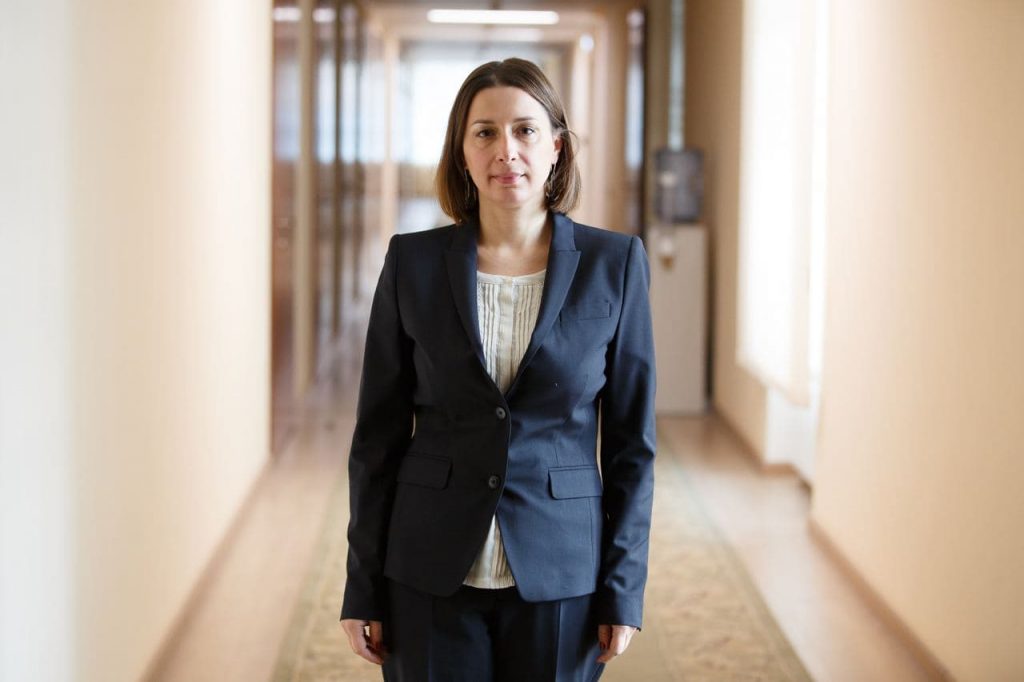
Will you continue to monitor them?
Unfortunately, the state of emergency goes on, the war is ongoing and, of course, we continue to monitor the situation in Ukraine. We monitored a show on RTR and several news broadcast by NTV, which are related even to biological laboratories. We are trying to keep up and this in the conditions of a precarious endowment, of very limited human resources. We will continue to monitor, respond to complaints, and I believe that civil society, NGOs will find that we have abandoned the previous practice of ignoring certain media organizations. We are examining all petitions.
“THE PURPOSE OF THE LAW IS NOT TO CLOSE TV CHANNELS, BUT TO BRING THEM IN LINE WITH THE CORRECT JOURNALISM”
Are these sanctions enough to have an impact?
Let us start with the philosophy of the Code. This, and in particular the article 84 related to sanctions, is designed in such a way that the sanctioned cannot commit abuses. A TV channel cannot be closed after two sanctions. There is the warning threshold, then the first fine between MDL 5,000 and MDL 10,000 and so on until the suspension, then until the revocation. Moreover, the logic is to make you obey the law. The role and purpose of the law is not to close someone, but to bring them into an environment in which to do proper journalism, to produce quality content. Then, with a grid of sanctions, it is obvious that you can do this along the way, but that is if you want to do according to the law.
Secondly, the penalties must be proportionate to the seriousness of the infringement. Let us admit you violated the art. 13 on the separation of facts and opinions. The second time we look – it is serious because this channel has national coverage or it is a marginal channel and its impact has no effect and does not end up manipulating on a national scale, but on a local scale. It is the first violation in the last 12 months or it is a repeated violation. Therefore, there are many things to keep in mind. In addition, we are obliged by the Code to motivate our decisions; each member must justify his or her vote.
In order for these sanctions to take effect, you have to go through several rounds of monitoring, so it takes more time. Sanctions are not a swift solution; they may not be effective now, but over time. To take effect over time, it needs monitoring. The more the BC minds its own business and applies the Code, the more we feel the effects of this monitoring. And I hope we can feel them by the fact that the programs and the broadcast content become more correct, they are made professionally.
Do you agree with the scenario in which a license could be withdrawn?
In the current situation, if the TV channels comply with the provisions of the CES and do not retransmit military content, and our monitoring confirms this fact, then what is the legal basis for suspending them? On the other hand, if a TV channel continues to violate the article 4 on local content for one year, i.e. does not produce the required volume of local content; whether it will continue to broadcast cartoons that are not dubbed into Romanian; if it continues to infringe the article 13, then it is obvious that, over time, this set of sanctions will gradually lead to the withdrawal of the license, the revocation. However, this can happen because of monitoring, going through the completely legal procedure, without any interpretation.
Recently, PSRM issued a press release condemning the way in which the BC adopts decisions in relation to some media institutions. The Socialists accuse the Council of “rapidly becoming a political instrument” of government and note, “a dangerous tendency to impose censorship on the media, including television” because it would sanction channels that “are not pleasing the government”. How do you comment on the allegations?
Either they do not watch those TV channels or they do not know the law. Anyone who watches these TV channels is aware of the violations that are being committed. In addition, to say that the BC is on someone’s side … I can remind the socialists that the BC also took notice on the statements of the Vice-President of the Parliament, it also monitored the public channel on the facts invoked by him, and we monitored everywhere whenever we considered it necessary to take notice. TV channels of all kinds, of all profiles, public and private, national and regional, etc. were monitored by the BC.
The BC member Eugeniu Ribca has repeatedly referred to the need to take into account the web pages of media service providers? What is your opinion?
We are at an early stage in everything related to non-linear services (web pages), because we want to clarify the linear first. Moreover, here we have a lot of work to do. There are different approaches – I also consulted colleagues in civil society – that the web pages of providers, who enter the broadcasting field and have a license, should be treated as linear services and then they are subject to the Code. There are voices that say otherwise. I spoke with the Vice President of the European Platform of Regulatory Authorities (EPRA) on the subject. They gave us their methodology. I also talked to my counterpart in the UK and asked for their support. Therefore, this topic is on our list of priorities, but we have adopted an action plan for this year and the truth is that in the first three months of activity, we had other emergencies. Actually, we have not been able to do this in less than three months. The war has intervened all over the world… I do not know if this year we will start monitoring the sites, but unfortunately there are so many issues in the broadcasting and they all have priority.
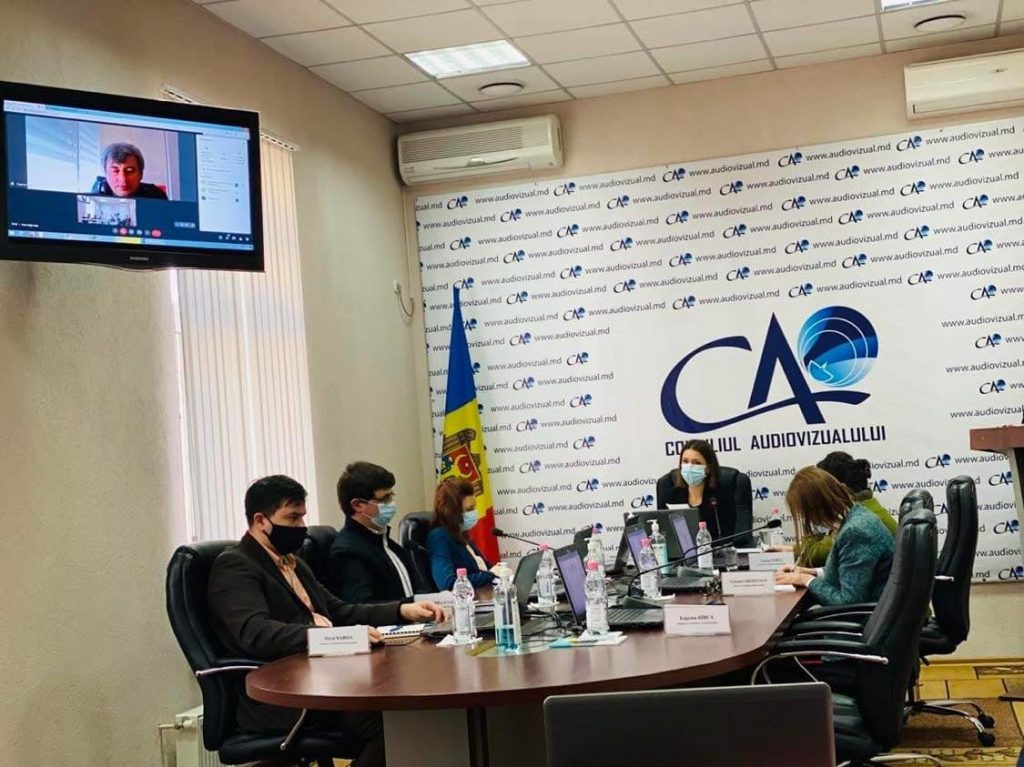
The CES decision on the retransmission of analytical and military information content in Russia is temporary. Do you agree that the so-called anti-propaganda law should be returned to the Code?
I believe that pursuant to the provisions of the CES decision must be found in the amendments to the Code, it must return to those provisions of art. 17 related to the protection of the national broadcasting space, as well as the share of at least 50% of European content. I am not a fan of the notion of propaganda, because it could generate abuse, but I think we could follow the good European practices of disinformation1, malinformation2, misinformation3 and so on. I think that a return to certain amendments is absolutely necessary because the war in Ukraine has shown that we are highly weak, we are still vulnerable to foreign propaganda. The Broadcasting Council is a weak institution in terms of human and technical resources. And then, of course, in the face of a continuous wave of misinformation and propaganda, it is clear that you feel weak and do your job to the extent and with the tools and levers you have.
Moreover, the art. 13 of the AMSC, on ensuring correct information, struggles with misinformation if it is respected, but it is very easy simply to pull the trigger, than to apply a rule. If the legislation is amended on the disinformation side, it will impose sanctions; it is obvious that it will make our work easier. At the same time, it will complicate it, because the eternal question arises: who is the judge? Who decides which news, documentary or feature film misinforms?
APPOINTMENT AND NGOs CRITICISM
The Government has nominated you for the position of BC Member. Why did you accept this post?
There are cyclical periods in life. In 2010, I witnessed a wave, after April 7, 2009, when we all thought that the major change had come, the European breath and then I went to the news from Moldova 1; I felt that I could be useful. I remember the comments of some colleagues from the civil society: “If you offered bad grades for Teleradio-Moldova (then we reported on the state of the Moldovan press for Freedom House), now come and prove, do something.” Now I probably felt the same way. Although for three years, I was well established in the non-governmental field, in an international structure, everything that happened in 2019, that duality of power for me was absolutely devastating, tumultuous and could not leave me indifferent. When you come to have a government that considers it appropriate to go to the maternity hospital with mortuary wreaths or throw turkeys over the fence of a public institution, after which comes a new series of changes, you can no longer stand aside. I could no longer stay.
You have become a member because of amendments made by the new government. According to the provisions, it is also provided for the dismissal of the BC members for unsatisfactory activity or if the annual activity report is rejected. Do you take a higher risk of docility towards the government?
No, I rule out docility, because I do not think any of the current seven members are holding on to this position. I am convinced that, as I have my own reasoning for why I came to the BC – to bring rules and fairplay on the broadcasting market, to create the right conditions for all those who make an effort to produce local content and inform people, etc. – the other members also have their own reasons for agreeing to work in the Board.
On the other hand, I enormous share the fears of civil society. The risk is there. It is true that someone who would like to hold this position by all means, given the perspective of this report and vote in Parliament, could try to get along with the government, to serve certain interests. Therefore, I believe that we need to come back with additions to the regulatory framework, with some performance indicators, so that everyone is clear on how a broadcasting council should do its job. This is exactly what should happen when, when we get to the presentation of the activity report, it will be very clear to the MPs based on which criteria to give grades, to say what is good and what is not. It is clear that this risk must be removed or, if not removed, at least reduced.
Does it matter if you have a common vision with the government? What will you do if there comes a new power?
It is important to move in the same direction, as long as it is the right direction as I understand it and resonate with good European practice. After all, if it is not very clearly written in the law or if the law can be interpreted in some places, we always have European practices at hand and we can look at how comes elsewhere. If things do not move in that direction at some point, this position is not for me. This does not mean that I do not appreciate the chance to do what I do, but if a new government asks me to do some things that do not resonate with certain personal values and principles, I will not accept.
“THIS YEAR WE HAVE TO BRING TO ORDER THE BC”
You have been in office for almost four months. How did you find the BC? What are the institution’s worst problems?
The lack of human resources is the first, because more than half of the positions in the BC are vacant. We do not have a head of foreign relations, we do not have anyone in communication or in the anteroom, and there are no people in accounting, in the legal department or in the licensing and control department. Seven out of 14 people work in the monitoring department. One of the causes is the low pay. If a good manager is the one who knows how to motivate and make sure that the competent people remain, here I cannot even attract the very good people, with such low salaries. We have partially solved the problem by changing the legislation and now we can have not only the functions of monitoring specialists, but also controllers, similar to those in the field of competition, who are better paid. The amendments concerning the Classification of Occupations were published only on Friday in the Official Gazette and now we are going to make a new organizational chart, to go through the new job descriptions, to launch job announcements.
The second problem is poor technique. Every day I talk to a donor about new monitoring software. During this period, I also turned to volunteers. These are the three people who deliver the transcripts to us, because that is exactly what this software would solve, it would do everything that speech recognition means and it would deliver all this quantitative part, and the specialists would only do content analysis and qualitative monitoring, that is, not the quantitative one, that a robot can do. I am grateful to the international and national organizations that came up with this solution – the help of volunteers.
The third problem is the lack of so-called expertise. In the new organization chart we have created a public policy unit, we need our own experts in the field, our people, to be raised and to assist the members when they face any difficulty: it is a case of hate speech, misinformation or miscommunication; whether or not the round is needed in the morning news; what do we do with violence; if we show the war, but technically process some sequences or not and so on. Here you need a mini think-tank if you want, so that we do not call civil society experts every time to consult you on different cases.
How soon could this department be created? Do you think that you can easily find experts?
The goal can be found in the new organization chart.
There are members who can train and strengthen these skills, each with valuable experience in their area of activity. We already do this by working with those who monitor the content, and we see the results through the quality of the reports delivered, because the monitoring methodology developed by our members has been adopted and used. I have no trouble taking students, instructing them, raising them. It is important to find people who are interested and even want to contribute. I understand that the approach to sacrifice has already become pejorative, but to make this effort and work a little for a public institution, such as BC.
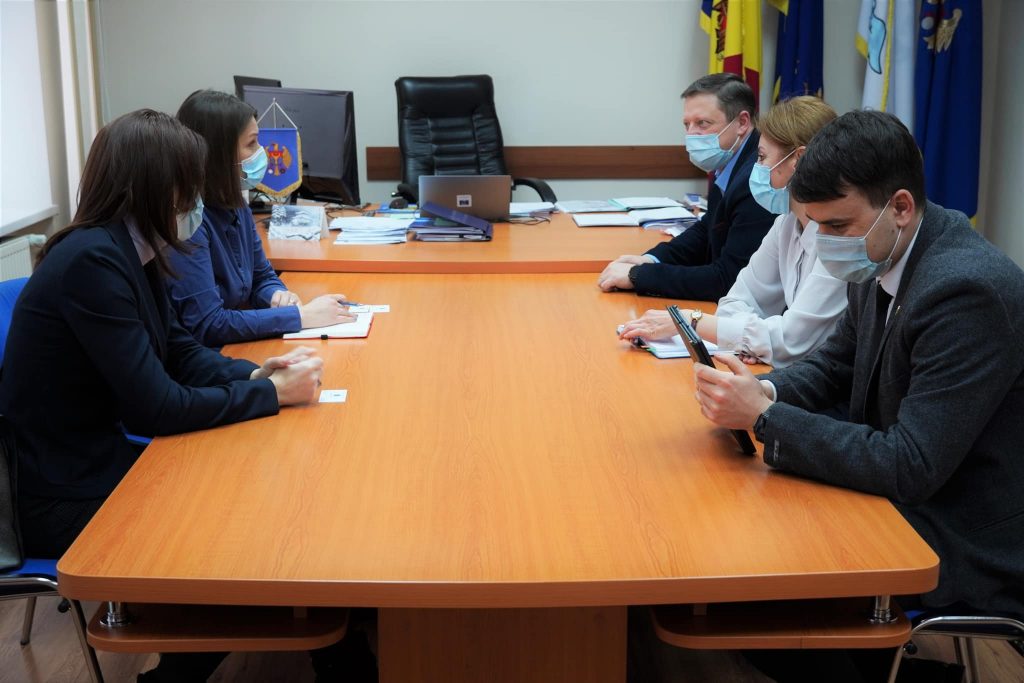
What have you been able to accomplish in these few months besides monitoring?
For example, we had to revise the list of significant events – must carry, the national classifier, used by some to escape the obligation to do eight hours of local content. Therefore, we have to make order from this perspective as well, because if you have a national offer and you want to have market share, advertising share and in fact, you are, through your offer, national, but you hide behind the regional title, which is a problem. Therefore, we set out to rule on these tools first – the classifier, the must carry and the significant events. All these have been submitted to public debate, now they are under the expertise of the Ministry of Justice. Not to mention that the first month of activity was a transitional one, because we had many arrears from the former composition of the BC – many files, decisions, petitions that we had to solve. And then, in the first two months of the office, we tried to put things in order and to come up with new regulations concerning business communications, broadcasting content, our organization regulations in the first place, a new organizational chart. We are already in advanced talks with the Council of Europe in Chisinau to help us with these regulations and development strategies. We discuss with the media NGOs to help us with the elaboration of these documents, which, of course, will later go through the selection of the members of the BC, through the selection of public debates. On March 24, we have a first seminar with the Council of Europe on Disinformation, to see what we can do and how we can regulate the area. In the meantime, we have been in talks with the Central Electoral Commission. We have been working on all the amendments to the electoral legislation in order to make more clarity on everything related to the debates, what is allowed to do in the campaign and during the electoral periods. It is already obvious that we need to develop everything that means electoral and monitoring methodology. We also need to talk to the Competition Council; because we need to work together to prevent and remove everything that means a dominant position in the market.
You mentioned the lack of proper software for monitoring, stocking and storage of information. Ala Ursu-Antoci, the former president, spoke about the assessment made by an expert, about the support of the Council of Europe, about the costs of about MDL 1.8 million. What can you tell us?
We started a siege of donors on software, we also had a meeting, but it coincided with the first day of the war and it is clear that all attention has shifted to this topic. All I desire now is peace. The war has now put an end to our day-to-day work, and at this stage, it depends on the extent to which I can maintain a dialogue with donors. We work closely with the Council of Europe, we took their strategy as a starting point, because they did a technical review of the situation and came up with a development strategy to make everything intact – sound capture, software download, etc. I resumed work from this point and my priority for current year is to have this monitoring software.
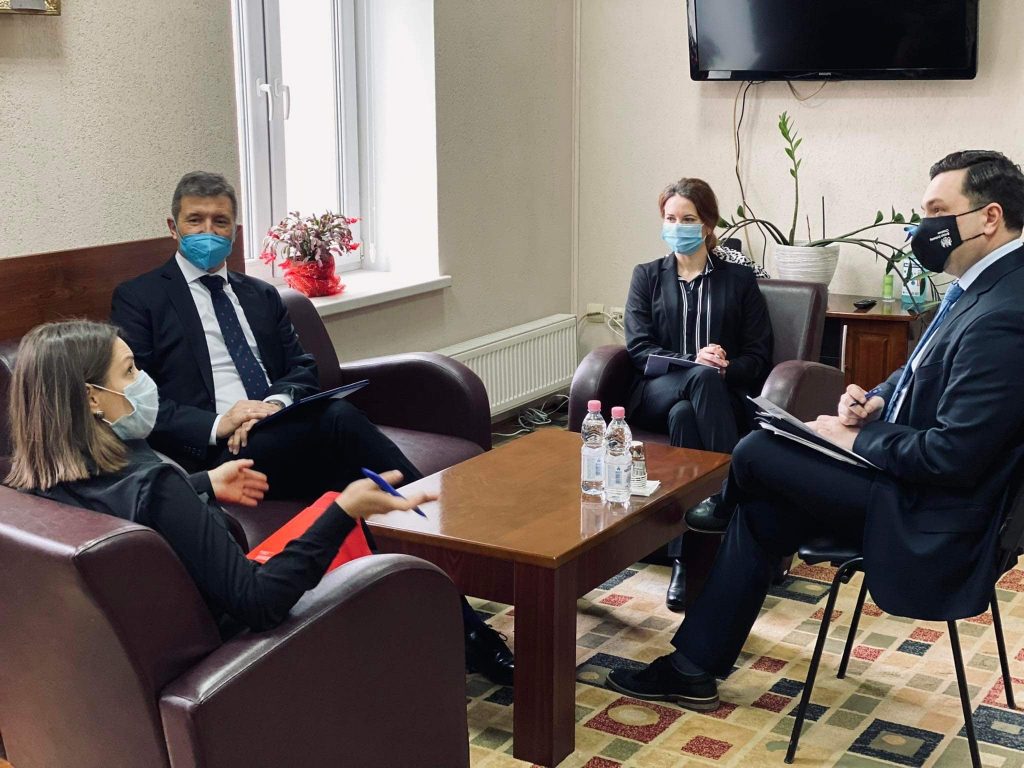
I am glad that we do not have elections this year and we can focus our efforts on tidying up electoral legislation, election monitoring methodologies, hate speech, how vulnerable groups are reflected and many others. It is the right year to make order “at home”, at the BC, on the market, in broadcasting, so that next year we can deliver results. This year it is a priority to have this software, to have everyone trained, to have the controllers, the monitors employed with revised job descriptions, so the whole revised organizational chart. This is the year we need to strengthen this institution so that when the time comes for the first attempt, we can promote and talk about the fact that at least a little public trust in this institution is growing.
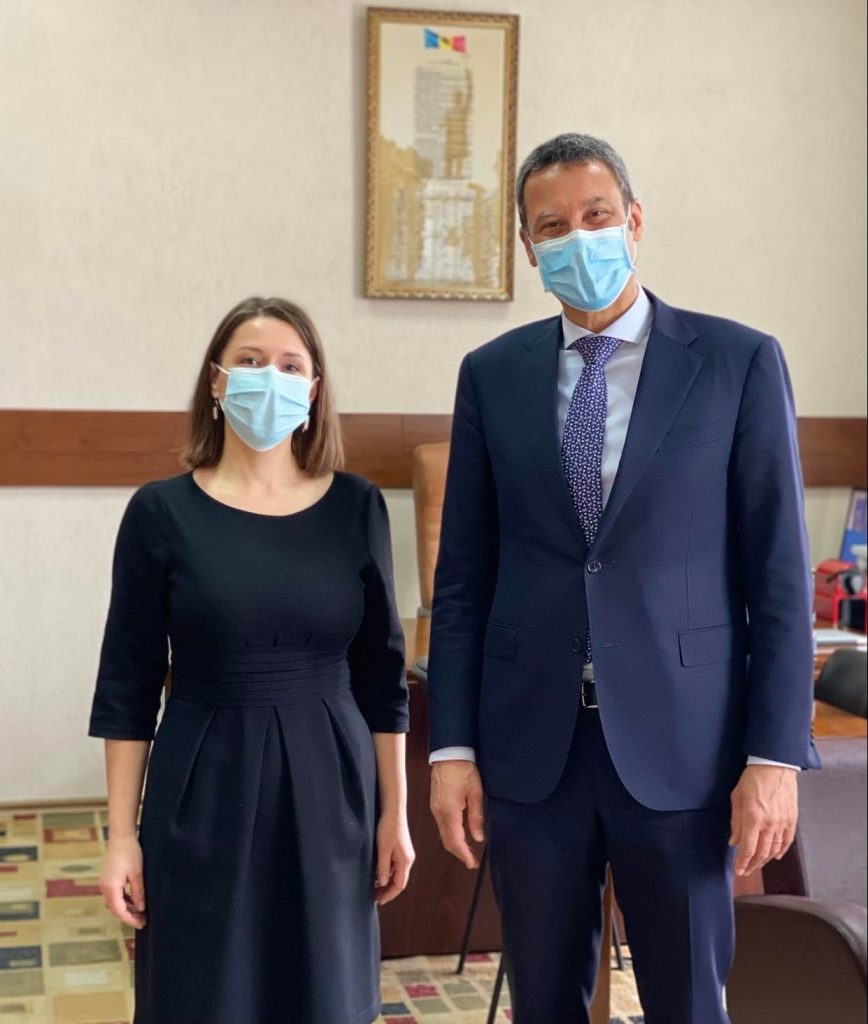
The Court of Accounts has previously reported the issue of procuring Mediamon monitoring software, which has been found to be inoperable. The case reached the Prosecutor’s Office, then the Police and returned to BC. Is there an end to this case?
Ping-pong has restarted. I also sent several requests to understand if this software is or is not morally outdated once, when it comes to scrapping a software that is on the balance of BC with MDL 425,000, you have to rely on documents or have very arguments solid. We are waiting for the time being. However, from a technical point of view, I do not know to what extent a software created ten years ago still meets the needs we have today.
What did the representatives of the European Commission say about the desire to carry out an external audit of the institution?
We are in the correspondence stage, the older discussion. The previous management of the authority did not want this peer-review. Previously, it was part of the conditionality for the support of the Republic of Moldova by the Commission. Now, we have decided to do it voluntarily, because it is in our interest to see the opinions of outside experts, where we are in a bad position, where we are somewhat acceptable, and I should know in which direction to move in terms of management. The war has put an end to everything for now. From what I understand from our colleagues in the delegation here, there is interest. We are going to advance bureaucratically. However, the audit is included in our Action Plan for the current year. It can happen in the summer and in the autumn.
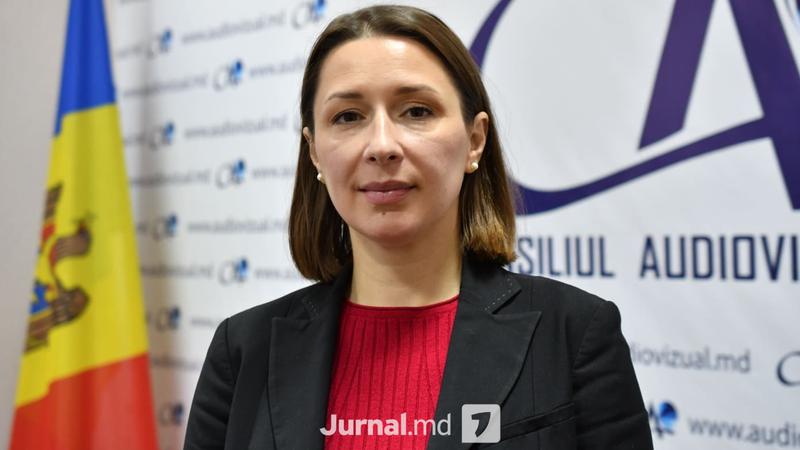
ONLINE REGULATION BY BC NOW, “A FAILURE FROM THE VERY BEGINNING”
Would you choose the authority to have online regulatory powers?
Definitely not. I understand, this war has shown that it is necessary, the old times, when the online was free of regulation are over; if we look at the structure of misinformation in the Republic of Moldova, it is primarily spread online and on social networks. Nevertheless, with the abilities we have now, any extra task would mean a complete failure. We barely manage to monitor the channels (and not all of them), with volunteers, with the involvement of members. We choose them based on audience, impact, and certain criteria or based on notifications. I tell you the truth: now any discussion about online environment regulated by the BC – this BC, with these almost non-existent capabilities – will be a failure from the very beginning.
However, if the government starts working on regulating online, is the council the right institution to take responsibility?
There are different formulas. For example, the UK authority has several regulatory directions, and indeed one is online. But they have a few months to examine a file or a petition. From what they have told us, there are almost all suppliers in good faith, they do not have suppliers who refuse to provide records, who try to negotiate with you “do not monitor me now because employees are on leave”, and when they you say you are monitoring them at another time – “no, now my staff has been sick, but now something is broken”. Then again, when you are dealing with a completely different culture of interaction, you can do it online. However, here, when some providers try to cheat, they prefer to be fined for not submitting the registration or for not producing local content, things are much more complicated.
There is only one audience measurement in the Republic of Moldova, and some TV channels have expressed distrust of the figures provided, although they pay a lot of money for them. Are you advocating for the liberalization of this market?
I promote liberalization of any kind. You must not have a doctor’s degree in economics to realize that any monopoly is not good, it is an abuse, and it means less fairness, fewer possibilities for the subjects of this monopoly. By the way, because I saw all kinds of comments like “The BC does not do anything with the advertising market”, “BC, bring things in order!”. I am very amused by the world that I do not know to what extent the AMSC has ever read and comes with such requests. Based on which article? What legal provision entitles me to override this measurement? Media service providers have contracts with the economic agent. It is at their discretion.
The BC’s connection with this subject is through the article on the measurement of audience quotas, which is carried out by specialized institutions through open competition. It is only our responsibility to conduct the competition for the selection of the operator. Nothing more, we have no contract, they are not obliged to provide us with the figures.
Can you promote the idea of liberalizing this market?
Yes, but we did not get to this point, as in other cases described earlier. It is on our to-do list. What do we do with the current measurement? I do not want to come with accusations, but we have signals from several suppliers that they do not trust these figures. So what action can we take? In 2023, when we are going to organize a new competition (the 5-year term for the current measurement will expire), we could elaborate another regulation, with other terms of reference, which could eventually bring other players.
In addition, we can really talk, search, at least see who would be interested in coming, if there are those who wish. From what I have heard, in fact, large audience measurement companies divide areas or countries among themselves, who and where is present, and then a company can drop out of the contest or even write a letter that it is not even interested in the offer. That is what we have heard before. We will see if this is the case when we organize the contest. The question is what to do with two or three companies in such a small market. One is to want liberalization and to believe in this value, and another is to have the feasibility of such a small market.
The former president of the BC categorized the lack or insufficiency of the local TV product and the insufficient share of the product in Romanian as a serious issue. There have been many fines in this regard lately. Do you think the situation has improved or is it the same?
This is exactly the reason why we chose to carry out our first thematic monitoring on this subject, because from all the signals we received from the market, here we are told that there are huge distortions. There are providers that invest and try to produce eight mandatory hours of content, six or four hours and there are others that do not aim, I do not mean that they parasitize or cheat, but benefit from content retransmitted without investing in the extent to which others invest, but at the same time taking advantage of a good part of the advertising market. We have indeed found many TV channels that still do not question or may have thought that this BC will be lenient, will not be able to monitor the contents so quickly. If you look at our monitoring report, I do not remember if there was any unsanctioned TV channel.
We set out to have a monthly thematic monitoring. The first – on local content, the second – on the art. 13 of the Code, concerning the accurate information, but we thought to make a set of rules of conduct first – about how we will monitor and what we understand by this guide, so that we can agree with all suppliers, publishers: when we say the separation of facts and opinions, the way of monitoring; when we refer to violent content – what it means, what we target, how we sanction, etc. The vice-president Aneta Gonta elaborated the regulation, it was submitted to public consultations, we received recommendations from several NGOs and it is to be approved.
By the way, one of our plans for 2022 is to monitor the linguistic accuracy or correctness of the Romanian language. We have included the objective in the procurement plan and we will contact someone to do this monitoring.
TRM wants to obtain the right to receive money from commercial advertising the same as private TV channels, given that it receives resources from the state budget. What do you think about this intention?
European practice shows that it is not right to have a full state subsidy and access to advertising. If the state sufficiently covers the needs of public office – and should do so – it is a case. The question is to what extent the budget provided for TRM is sufficient for the development of the institution.
On the other hand – I am speaking now in general, not in the particular case of the current TRM leadership – but several questions arise when we talk about a public broadcasting institution: to what extent and whether the funds are judiciously used, such as the management of the institution in question, is it designed so that everything is streamlined from an operational point of view? There are many things to think about here. I think the best approach is to make sure that what TRM receives is enough to grow and deliver quality products. Meanwhile, any such change must be treated in the light of the concept of fair / unfair competition and fair rules for all.
¹Disinformation – false information and deliberately created to harm an individual, social group, organization or country. (Source: Arenait.ro)
²Malinformation – reality-based information used to harm a person, organization or country (Source: Arenait.ro)
³Misinformation – false information, but not created with intent to cause harm (Source: Arenait.ro)


